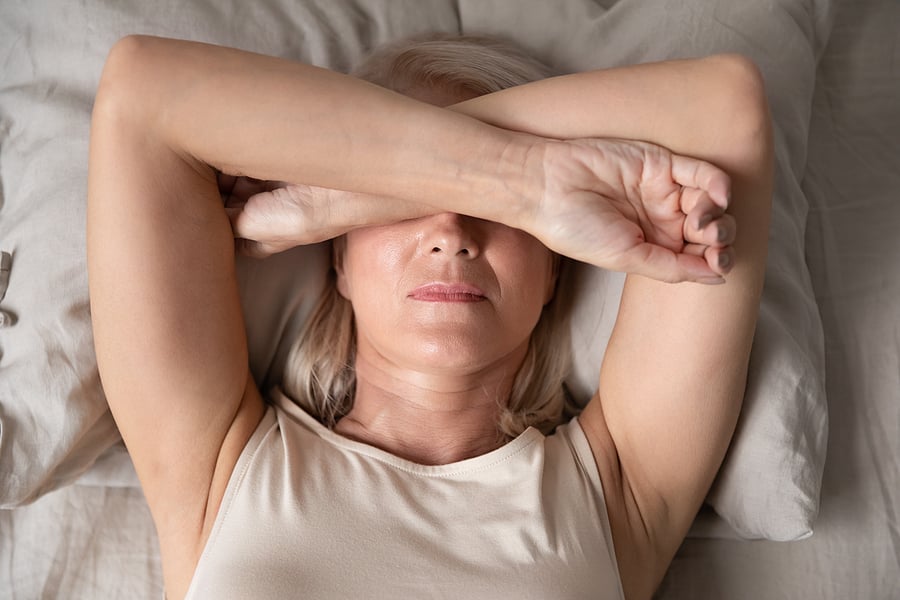Why women suffer with insomnia more than men, and how to beat it
Did you know that insomnia is a sleep disorder that affects many people all over the world, with studies showing that women are more likely to experience it than men?
Hormonal changes during the menstrual cycle, pregnancy, and menopause can disrupt sleep for women, as can medical conditions like depression, anxiety, and chronic pain.
Multiple responsibilities related to caregiving, parenting, and work, can lead to stress and a lack of time for self-care, further impacting sleep quality.
Insomnia can make it difficult to fall asleep, stay asleep, or both, leading to daytime fatigue, irritability, and other health problems.
Read more
- Sleepless Nights? Discover how online classes can help you to get better rest
- Transform your sleep with breathwork
If you’re struggling with insomnia, here are five ways to try to beat it:
- Stick to a regular sleep schedule: One of the most effective ways to improve sleep quality is to establish a regular sleep schedule. Try to go to bed and wake up at the same time every day, even on weekends. This helps regulate your body’s internal clock and can improve the quality of your sleep.
- Create a relaxing bedtime routine: A relaxing bedtime routine can help you unwind before bed and prepare your mind and body for sleep. Consider taking a warm bath, reading a book, or practising relaxation techniques like deep breathing or meditation. Avoid stimulating activities, like using electronic devices or watching TV, as they can interfere with sleep.
- Make your bedroom sleep-friendly: Create a sleep-conducive environment by keeping your bedroom cool, dark, and quiet. Remove any distractions, such as electronic devices or bright lights, and invest in comfortable bedding and a supportive mattress. Consider using blackout curtains or a white noise machine if you live in a noisy area.
- Limit caffeine and alcohol intake: Caffeine and alcohol can interfere with sleep, so it’s best to avoid them in the hours leading up to bedtime. Instead, choose calming herbal teas or warm milk to help you relax. If you need a caffeine boost during the day, try to consume it earlier in the day, and limit your intake to no more than 400mg per day.
- Seek professional help: If you’ve tried these strategies and are still struggling with insomnia, it may be time to seek professional help. A healthcare provider can assess your sleep patterns and recommend treatment options, such as cognitive-behavioral therapy or medication, to help you get the rest you need.
Insomnia is a common problem that affects many women. However, by sticking to a regular sleep schedule, creating a relaxing bedtime routine, making your bedroom sleep-friendly, limiting caffeine and alcohol intake, and seeking professional help if needed, you can beat insomnia and get the restful sleep you need to feel your best.
Lisa Lawrenson
Latest posts by Lisa Lawrenson (see all)
- Knocking on Wood and Crossing Fingers: Which superstitions do you believe in? - August 13, 2024
- 7 essential foot care tips for a blissful summer - July 23, 2024
- 10 lawn games to play with the grandchildren this summer - July 5, 2024
- Unusual uses for a hairdryer - July 3, 2024
- Traditional wisdom or tall tales? We test old wives tales for insect bites - June 21, 2024





















